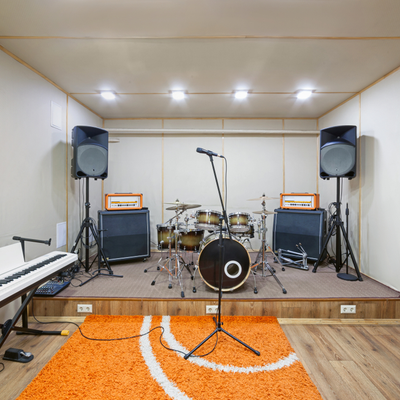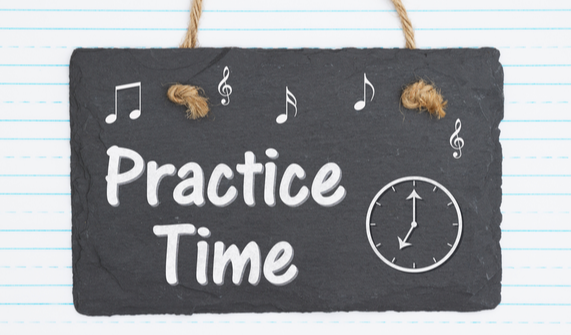
How To Start A Band
After doing online music lessons and setting up a perfect practice space it is time to put all those hours of practicing at home to use by starting a band. After all, for most, the idea of practicing individually is to eventually play with other like-minded musicians and perform or record music.
How to get started depends on your network, the opportunities presented in your local community, and what the ultimate goal of the band is. Is the band a passion project? Perhaps it is a creative outlet for original music? Is the purpose of the band to generate money? All of these variables will ultimately shape how the band is operated, who is in the band, and what the band’s ultimate purpose will be.
Deciding on Musical Genre or Direction
As with many aspects of life, everyone has a different taste when it comes to music. When it comes to creating a band, the first decision to make is what style of music the band will play. This will help later on when trying to find musicians to play in the band. Depending on the genre, it will also have an impact on how big the band may be. If the main idea of the band is to play original singer-songwriter music, perhaps a duo of guitar and vocals would be suitable. If the musical genre is to be swing music, the band size can go from 3 to 21 musicians and more to cover the various instruments found in that band. Of course, it is also important to see if there are people playing the instruments you envision in your local community. This is not to say that you can’t have a choice of what instruments are in the band. For example, if you are looking to start a Jazz Band but there isn’t a drummer in town, having a jazz band without a drummer is perfectly fine.

Finding Like-Minded Musicians
A band without members that get along on a musical and personal level is heading down a path of frustration. This is not where music should be. As with a lot of activities in life, finding a person with the right attitude is important. Someone that is easy to get along with, isn’t defensive when it comes to pointing out musical choices, and has a positive attitude towards the direction that the band is going in.
There also needs to be an understanding of what level of musicianship is needed for the band. Everyone strives to be the best they can be, but frustration can be minimized if there is a clear understanding of the level that a band is at when seeking band members. If a band is too advanced for a member, there is added stress for that specific member to keep up with the group. If the gap between the skillset of the member and the band is too great, everyone may get frustrated making band rehearsals less productive.
The best way to find the perfect bandmate is through a personal network. See which friends or colleagues are musically inclined and have the same taste in music. When working together with familiar people, the stress and frustration of starting the band can be diminished. It may take an effort though to keep the stress diminished as the band progresses.
Another way to find musicians is through services like BandMix, social media platforms like Facebook, or even platforms like Craigslist. When posting on platforms it’s important to give a true representation of what kind of person you are looking for, the genre of music, the frequency of practices and gigs, and the location of band practices. Keeping the post positive in nature will attract more respondents. On platforms like Facebook, there will be local groups or pages which can be used to post on. This will get the message across to more like-minded musicians.
Personal Practice vs Band Practice
It is also important to point out the difference between personal practice and band practice. In a personal practice session, one focuses on enhancing the skills on an instrument which makes executing the required musical passage as smooth and clean as possible. During band practice, however, it’s about finding a cohesive way to integrate all members to do justice to the music that is being played. Oftentimes in an amateur band, time is being spent on playing elements to address the individual player rather than the group. For example, if a guitar player doesn’t know the position of a C Major Chord and has to stop the entire band to figure this out, it may be productive to the individual but certainly will not be productive to the other musicians that have to wait.
Showing up to a band practice knowing your part will minimize frustration and maximize productivity during the band practice. It is important to be attentive, open-minded, and take notes during band practice.
Finding Music To Play
Now that there are members in the band to play music, the next step is to find music to play. Depending on the skillset of the musician and the instruments in the band, there are some considerations to think about. If the band plays original music, a collaborative effort may be appropriate. Having songwriting sessions where the band makes a few decisions ahead of time will make practicing together more efficient. If the band plays mainly cover songs, it’s important to build a list of songs with reference tracks so that each member can have a chance to listen to the song. Musicians that mainly play by ear should have a clear understanding of structure in their head or on paper so that when it comes time for the band practice, time isn’t wasted on finding out what key a song is in and what the structure of the song is.
There are also instrument-specific considerations. In general, horn players are more likely to be able to read music than guitar players. This may result in having some band members play from memory because they may not be able to read sheet music while other members may need to rely on sheet music. In the band practice session, having a discussion and making notes on the general structure of the song, who solos were, and what band member is in charge of musical decisions like cut-offs is important. When it comes time to play a gig, however, everyone should have an open mind and ear to react to unplanned circumstances. At times a song may have an extra bar in the first chorus vs the second chorus. If that extra bar is skipped by accident, everyone needs to have an understanding of the song to know that this happened and to move on in order to minimize the impact of this accidental situation.

Finding a Time and Space to Practice
As with many things in life, having a frequency and familiarity with an activity will contribute to the enjoyment and productivity of that activity. Band practices are no different. As creatures of habit, having a regular practice day and time is important. This can all be figured out through a few phone calls, text messages, or emails. Another idea is to use apps like WhatsApp and set up a group chat so that everyone can see and contribute to the conversation in real-time but when they are able to do so. Making communication as easy and efficient as possible will ensure that everyone can have a voice and get access to the information they need to show up prepared for practices and gigs.
Finding a regular space can be challenging depending on where you live. Ultimately a band member has a setup in a house that has the required backline for the band. However, if this isn’t possible the next step may be to seek out a practice space in a practice facility. In Toronto, one of the more popular and affordable practice spaces are the Rehearsal Factory and Lynx Music. In your community, similar practice spaces may exist. If however, they don’t, an alternative may be to approach a local church, community centre, or even a senior’s home. In the case of the seniors home and depending on the genre of the band, in lieu of paying money to rent a space, a senior home may accept a few free performances for their residence.
Other Considerations
There are some other considerations when it comes to starting a band. At the top of the list may be how finances are handled. If the band has members that do music as a hobby, creating a band fund where everyone pools money to operate the band may be the best way to go. There will be expenses associated to running the band which everyone could share. In a band that has a mix of hobbyist and freelancing musicians, it is important to recognize the various reasons why a member is in the band for. The hobbyist may not care about making money from gigs but the freelancing musicians rely on money being generated. Having an understanding ahead of time for this scenario will help create an environment of positivity.
It may also be important to record a demo and post it through a social media platform. This will help when approaching venues to play in and can create a community of fans around the band. Loyal followers will be important to make the gig a rewarding experience for both musicians and audiences. Of course, the first fans of the band may be the family and friends of the musicians. Having a social media presence will help expand on this familiar fan base to get the music out to more people who may not have a direct connection to the band members.
Finding gigs when the band is ready will become an important part to keep the band evolving. Utilizing a personal network is again beneficial. Perhaps there are band members that work for a company looking for a band for their next employee picnic. Maybe a neighbourhood is putting together a local community event and would like to involve local members as part of their entertainment. Being on the lookout for music festivals and Rib Fests is a good next step, but more preparation to approach a more formally structured event is needed. A website and social media channels may be required to showcase videos of the band which can be sent to event organizers. There are also platforms like GigSalad which can help in finding the right gig for your band.
Now that you are aware of these tools and strategies, what else can you do to help your journey to becoming the musician you want to be? Check out THIS BLOG if you are an Adult Learning to Play Music and CONTACT US for private online music lessons to fast charge your progress on any instrument.








